Videos are an undeniably powerful marketing tool, especially for the hotel and travel industry. After all, they can capture the attention of the audience much quicker than text and have the power to generate extremely high traffic to your website. No wonder video marketing has taken the Internet by storm. This effective tool is so versatile that you can use it to promote your hotel’s services and build customer rapport.
Table of Contents:
- What is Video Marketing?
- How Your Hotel Can Benefit From Video Marketing
- 360 and Virtual Reality Videos for the Hotel Industry
- Difference Between 360 and Virtual Videos
- Why Are 360 VR Hotel Videos Becoming So Popular?
- 5 Great Examples of Powerful Hotel Videos
- Hotel Video Marketing Global Outlook (2025-2035)
What Is Video Marketing?
Video marketing isn’t just about selling content to a target audience. Different aspects of this online marketing tool can be used to promote website visits, products, and services, and attract bookings.
About 39% of users have booked travel or made a travel-related purchase after seeing content on the platform. That means your property needs an “always-on” pipeline of vertical, snackable content such as room reveals, breakfast spreads, spa POVs, hyper-local bites, and staff-hosted tips, to seed inspiration daily.
You can even improve your customer service through effective video marketing strategies. According to the Video Marketing Statistics Report by Wyzowl, 91% of businesses use video as a marketing tool.
Table: Example of Channels & Platforms Where Video Marketing Can Be Used
The table below presents a comprehensive overview of effective engagement strategies for hotel videos across diverse platforms. Each strategy is accompanied by key metrics, enabling hotels to assess the performance of their video marketing efforts.
How Your Hotel Can Benefit From Video Marketing
A professionally created hotel video will help your business gain market credibility. Video content will help you tell your story and allow potential customers to get a feel for your hotel’s facilities and services before booking a room on your website. In this article, learn the 15 essential video marketing tips and some amazing video examples to increase your hotel revenue.
1. Focus on quality
High-quality videos tend to attract more viewers than low-quality images. If your hotel video looks like an amateur created it, the chances of room bookings will be much less. Creating a high-quality video will give you the best possible returns on your investment. If your video doesn’t quickly or effectively address the guests’ needs through quality pictures, they will move on to another property, and your video will be forgotten in seconds.
2. Wow Your Audience With a Great Intro
The hotel industry relies on effective videos to promote its services to prospective customers on the Web. A brief intro is the most essential part of your video, as you will want to capture your viewers’ attention from the second they watch it. Remember to keep your intro direct and short. It must tell the viewer everything about your hotel while setting the tone for the rest of your content. Incorporating an intro video into your website’s homepage lets you grab your visitors’ attention.
3. Make Your Video Stand Out
If you want to create a unique video, you must first highlight your hotel’s unique features. Your business has a rich story behind it; you must convey this through your video. Find out what makes your business stand out from others and emphasize that. Only then will you be able to find your tone and uniqueness. Whether your tone is inspiring, passionate, or serious, you need to think of all the characteristics that make your particular hotel different from all the ones in your location and portray these in a positive tone of voice in your video.
4. Add Value to Your Video
Adding value to your hotel video doesn’t mean creating a sales pitch that’s all about your brand. You should consider video marketing an opportunity to add value at every stage of the potential customer’s online journey. While you might think it’s easy to produce a great hotel marketing video without much pre-planning, you could end up with low-quality content that will only harm your brand. It is, therefore, important to start with a script to keep your filming crew on track and your viewers engaged.
5. Share Your Video With Your Audience
Another important tip for your video marketing campaign is to enable your video to be shared on your other social media channels. This will help spread the video across platforms and reach a wider audience. According to the Most Popular Video Content Type Worldwide Research Report by Statista, online videos had an audience reach of 92.3%. YouTube is one of the most important social media sites since millions of people use this platform to watch videos every month. You need to include a link to your website on your YouTube video so your audience can visit your homepage after watching your video.
6. Use AI for Video Production
AI technology has revolutionized video production efficiency and cost-effectiveness. Companies are saving up to 80% of time and budget compared to traditional video production methods. AI-powered tools can automate editing processes, create personalized video content at scale, generate captions and translations automatically, and optimize video delivery based on viewer behavior. AI-driven personalization in video services is fueling market growth, with hotels creating shoppable videos where viewers can book directly from clips. You can use AI to generate titles, hooks, and 10–15 thumbnail variations and then pair with dynamic creative (as Accor did) to route the right room, rate, and message by market, interest, and language. Keep governance tight: clear permissions, brand guardrails, disclosures, and accessibility standards.
7. Show Behind-the-Scenes Content
Modern travelers value honesty and real moments. Videos that show what happens behind the scenes, such as your staff at work, daily routines, or small details of hotel life, feel more real and trustworthy. The best part is that not every video has to look perfect or highly edited. In fact, most people enjoy a mix of beautiful visuals and natural, unfiltered clips. This makes your hotel feel more human and relatable. Big hotel brands are already using this approach successfully by sharing short clips of chefs preparing dishes, housekeeping teams setting up rooms, or staff welcoming guests, creating authentic connections that lead to more bookings.
8. Create Compelling Virtual Tours
Virtual tours and 360-degree videos reduce uncertainty and lift conversion by helping guests imagine the stay. Google’s research on media-rich listings found that virtual tours can double interest in a business; other roundups report 41% more clicks and significant gains in engagement and time on site. Hotels using tours routinely report more confident direct bookings and fewer pre-arrival questions. Make sure your tour is easy to find on your homepage, rooms pages, and Google Business Profile, and pair it with clear CTAs and real prices. Produce a 90-second “How this room feels at sunset” video + embed a 360 walkthrough next to “Book Now.”
9. Treat Video like SEO Content
Google recommends technical basics many hotel sites overlook, including stable thumbnail URLs, dedicated watch pages, and video structured data to help videos appear in video carousels, Key Moments, and search. For hotels, that means embedding your best evergreen videos on optimized pages (rooms, meetings, weddings) with descriptive titles, transcripts, schema, and internal links to rates and packages. This improves both discovery and conversion. Pair with GA4 events (video start/complete) and connect to booking-engine events for performance modeling. Add VideoObject schema to your top 10 videos and create SEO-friendly watch pages for each on your domain.
10. Balance Short-form Reach with YouTube Depth
Shorts, Reels, and TikToks drive discovery. YouTube wins when travelers want depth, including room categories, meeting space walkthroughs, and neighborhood guides. In 2025, the average YouTube video retains only ~24% of viewers. Channels that hook in the first 60 seconds win. Use strong thumbnails, fast value delivery, chapters, and clear next steps (rates, packages, subscribe). Treat YouTube like owned media. Make a 6-minute “Wedding Site Tour” with chapters (Ceremony, Ballroom, Suites, Menu) and a trackable room-block code in the description.
11. Collaborate with Influencers
Influencer partnerships can extend your hotel’s reach to targeted, engaged audiences. Expedia Group Media Solutions notes that 70% of travelers trust influencer recommendations over brand ads. Micro-influencers (10K–100K followers) often deliver better engagement than big names because of their close-knit communities. The Ritz-Carlton’s “Leave Better” campaign and similar initiatives by Marriott and Hilton use hotel influencers to create social proof and credibility. St. Tropez House’s campaign with Villa Ama doubled Instagram followers and achieved near full occupancy. Combine influencer content with paid amplification and track ROI through unique UTM links or promo codes. Done right, collaborations drive brand awareness, trust, and measurable direct-booking growth.
12. Leverage User-Generated Content (UGC)
User-generated content has become a powerhouse in hotel marketing. Statistics reveal that 84% of people are more likely to trust a brand that uses UGC in their marketing campaigns, and 77% of consumers’ purchasing decisions are influenced by UGC. Hotels featuring UGC on their websites can increase time-on-site by up to 90%. Encourage guests to share authentic experiences using branded hashtags or incentives like free upgrades. Feature their clips on your social channels and website, ensuring proper permissions. Major hotel groups, like Marriott Bonvoy and IHG, regularly repost guest stories, achieving higher engagement and trust.
13. Go Live for Weddings & MICE
Live video builds urgency and two-way trust, perfect for site tours, menu tastings, AV demos, and Q&A with planners. Webinar benchmarks show rising attendance and learning value; meanwhile, YouTube Live just shipped major engagement upgrades (dual vertical/horizontal streaming, AI highlights, new ad formats). Run a monthly live “Venue Walkthrough + Q&A” with a downloadable spec sheet and a trackable RFP link. Clip the best moments into Shorts/Reels with auto-generated highlights and retarget engaged viewers with a meetings package. Measure lift in RFPs, lead-to-tour conversions, and group room-block pickup.
14. Implement Video Testimonials and Reviews
Video testimonials provide powerful social proof. With 84% of people saying they’ve been convinced to buy after watching a brand’s video, guest testimonials in video format are particularly persuasive. Hotels should film satisfied guests sharing their experiences, capture authentic moments during stays, highlight diverse guest demographics to appeal to varied audiences, and keep testimonials genuine and unscripted. When combined with the fact that 70% of guests consider reviews crucial, video reviews become essential conversion tools. Hotels like Marriott, Accor, and Hyatt use guest-story videos on landing pages and social feeds to build trust and drive bookings. Pair testimonial videos with your booking links and subtitles for accessibility.
15. Create Property-Specific Video Content
Every hotel property has its own story and features that deserve special attention. Make short videos that highlight what makes your hotel stand out, such as the rooftop pool, relaxing spa, or signature restaurant. Show each room type with clear walkthroughs so guests can see the space, view, and amenities before booking. Include nearby attractions or local partnerships to present your hotel as part of the destination. Capture seasonal moments like festivals, weddings, or winter décor to inspire repeat visits. A great example is JW Marriott’s K-Drama-style video with actor Lee Min-ho, which went viral and boosted booking inquiries.
360 and Virtual Reality Videos for the Hotel Industry
Virtual reality goes beyond just video games and entertainment. With the continuing advancements of this technology, it now offers an interactive guest experience through immersive headsets and 360-degree videos. Nowadays, many kinds of businesses benefit from VR, and the hotel industry is no exception. Remember to use 360-degree shots of the hotel’s rooms and facilities, as customers will get a closer look at the hotel and will feel comfortable staying there.
Difference Between 360 and Virtual Videos
One big difference is that the images in a virtual reality video are created digitally, whereas a 360-degree video is captured from a real-life setting. These live videos capture real places exactly as you would see them in everyday life, unlike virtual reality, where a virtual environment is created to interact with.
Why Are 360 VR Hotel Videos Becoming So Popular?
Virtual reality has the power to transport people from one exotic place to another, which is why the hotel industry is increasingly using VR and 360 videos to promote its brand. A 360 video invites people into a scene and offers an accurate picture of where they will stay. This makes the hotel guests feel more comfortable placing their trust in that hotel, and the chances of booking a room will be greater.
5 Great Examples of Powerful Hotel Videos
Video marketing is a powerful tool that helps luxury hotels grab the audience’s attention and engage them throughout the online journey. Here are 5 great examples of hotel videos on YouTube:
#Video 1: Byzantino Boutique Hotel Monemvasia in Greece
The video of the Byzantino Boutique Hotel, located inside the castle of Monemvasia, provides guests with a 360-degree view of the hotel’s location and facilities. The video of this hotel taps into the viewers’ different emotions about travel, relaxation, and getting a sense of luxury. The aim is to encourage visitors to explore the sights of Greece and stay in this luxury hotel.
#Video 2: Kalima Resort and Spa in Thailand
This 3-minute promotional video features the hotel’s rooms, facilities, and all the activities guests can participate in. The visual content is the most important part of this video as all the images are blended together in harmony. The effective call to action at the end of the video prompts viewers to visit the hotel’s website.
#Video 3: Holiday Inn Express in Adelaide, Australia
This newly-built hotel offers a 2-minute 360-degree tour of its premises with special emphasis on its features, including conference rooms, bar, fitness facilities, and of course, its rooms. The tour allows viewers to see the whole hotel in true lighting and proper proportions as though they are actually in it.
#Video 4: Agrovela Hotel Alacati in Turkey
The short movie-like video presents the authentic aspects of the destination, the characterful hotel rooms, and the visitors’ experiences within this charming Turkish village. The 2-minute video mainly focuses on elaborate and intimate moments of people enjoying themselves in a rustic hotel so you get a good feel of what the hotel offers.
#Video 5: Cape Dara in Pattaya, Thailand
The immersive 360° VR Walkthrough of the 5-star luxury resort allows viewers to visualize the hotel before booking. The main focus of this video is on the guests’ experiences. The audience gets a sense of the scale and size of the rooms as well as the hotel’s exotic surroundings.
Hotel Video Marketing Global Outlook (2025-2035)
Hotel video will scale with the travel rebound and rising digital attention. The WTTC projects Travel & Tourism to reach $16 trillion in GDP and ~449 million jobs by 2034, expanding the opportunity for video-led demand generation and direct bookings. As adoption nears saturation, 89% of businesses now use video, and 95% say it is essential. Hotels will compete on quality, usefulness, and personalization.
Travelers are consuming more travel videos across platforms. Google reports sustained growth of travel content on YouTube and heavy mobile watch time, making chaptered room tours, wedding/MICE walkthroughs, and neighborhood guides high-ROI formats.
Social will shape inspiration and conversion. According to Partners Expedia Group, 60%+ of consumers cite social media as a travel inspiration source (vs. 35% in 2023), pushing hotels to publish native short-form content with clear next steps.
Performance will be driven by AI and catalog-fed ads. TikTok For Business reports that Accor’s Dynamic/Travel Ads on TikTok delivered 2.3× ROAS, 1.8× bookings, and 46% lower CPA, signaling a decade of intent-driven, localized video at scale.
Expect marquee campaigns (e.g., Hilton’s 10-minute TikTok) to keep proving that platform-native storytelling can deliver outsized reach, members, and site traffic.
Winners through 2035 will pair accessible, captioned storytelling with video SEO, live formats, and first-party data, measuring watch time to revenue as travel demand and digital video continue to rise.
Video Marketing for Hotels FAQs
As the world of technology evolves, so should your hotel marketing strategies. Powerful videos that take the viewers’ experience to another level are growing rapidly. If you haven’t yet started optimizing your audience’s engagement through videos, now is the time to start implementing your strategy.
More Video Marketing Tips
Videos are a powerful marketing tool, especially for the hospitality and travel industry. After all, they can capture the audience’s attention much more quickly than text or images. In the following articles, you will learn more about video marketing:
- VR Hotel Tour: Amazing Examples of Virtual Reality Hotel Tours
- Essential Video Marketing Tips for Hotels
- Benefits of Virtual Reality Marketing for The Travel Industry
- Must-Read Tips to Create The Perfect Virtual Reality Video
- Reasons Why Every Hotel Should Have a Virtual Reality Video
More Tips to Grow Your Business
Revfine.com is the leading knowledge platform for the hospitality and travel industry. Professionals use our insights, strategies, and actionable tips to get inspired, optimize revenue, innovate processes, and improve customer experience.Explore expert advice on management, marketing, revenue management, operations, software, and technology in our dedicated Hotel, Hospitality, and Travel & Tourism categories.

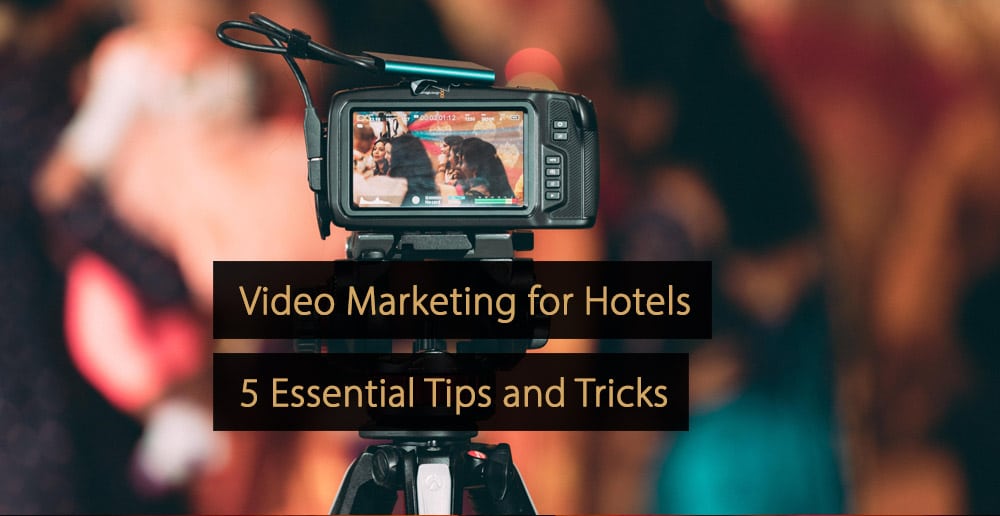
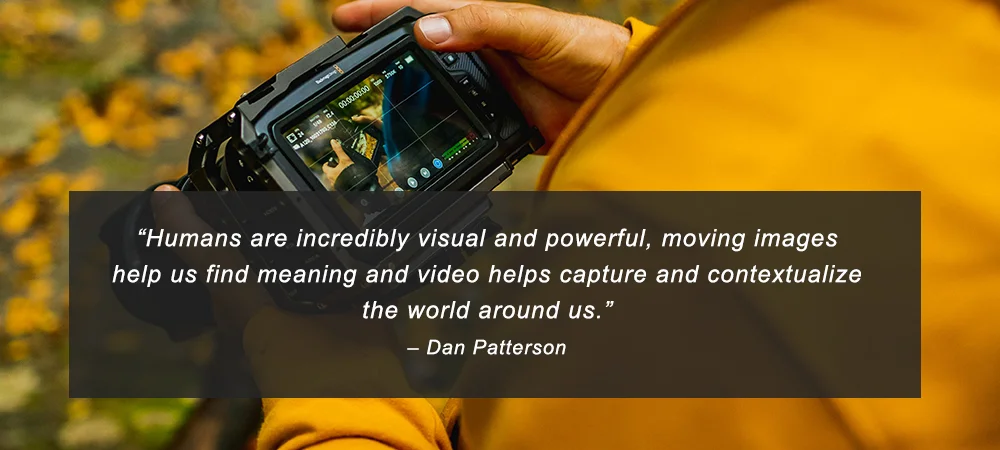
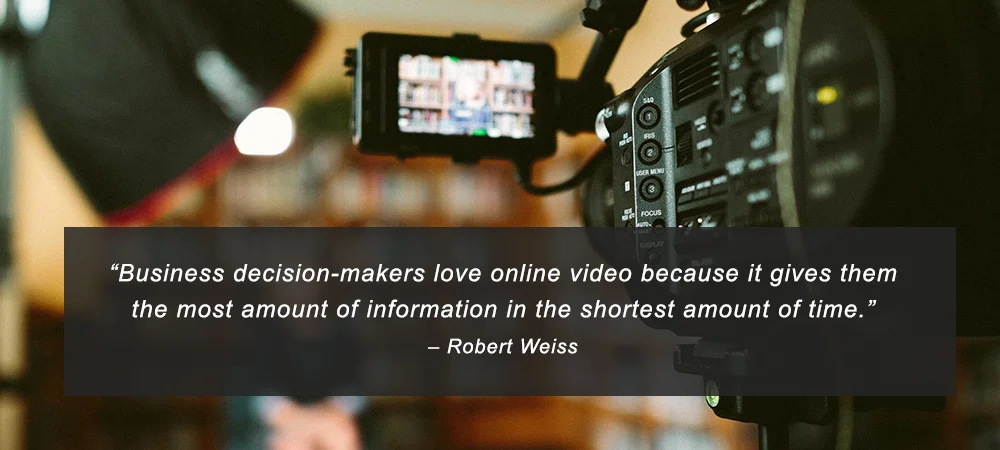
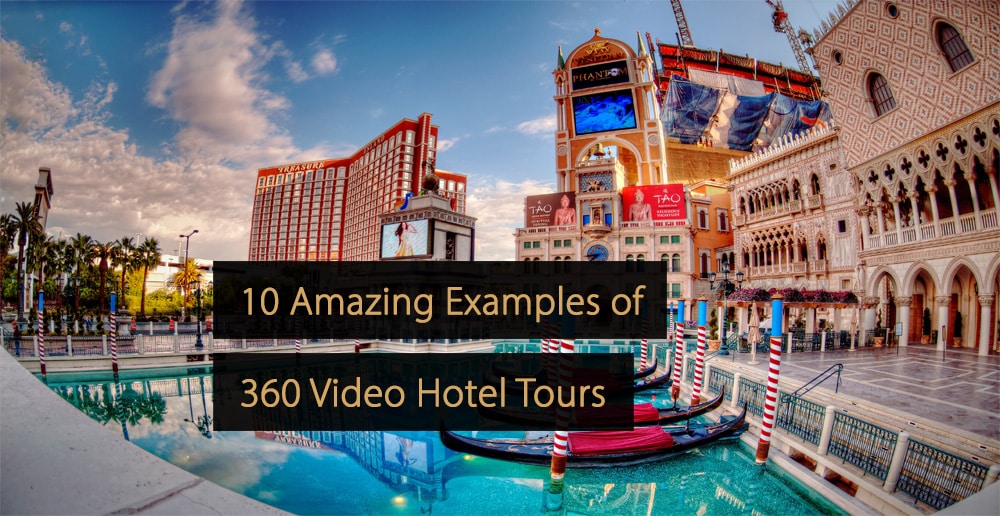
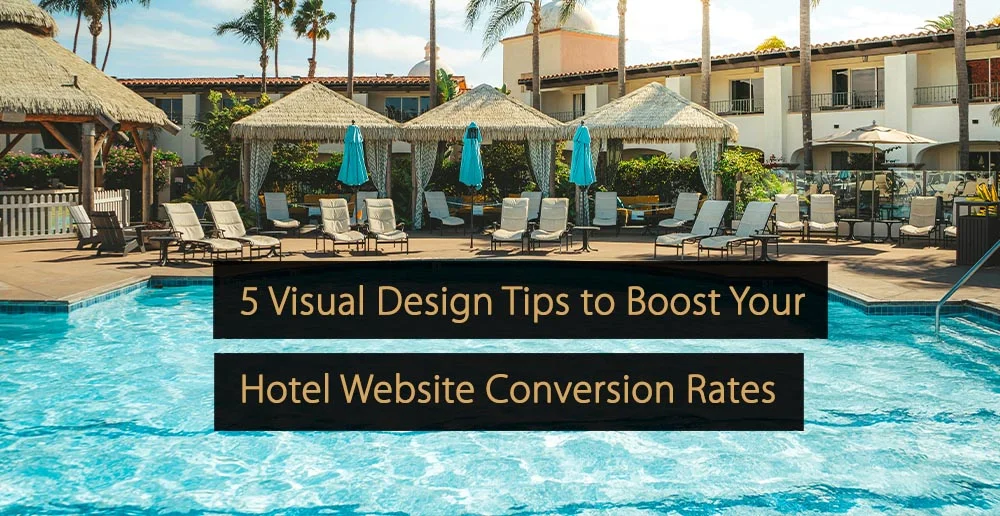
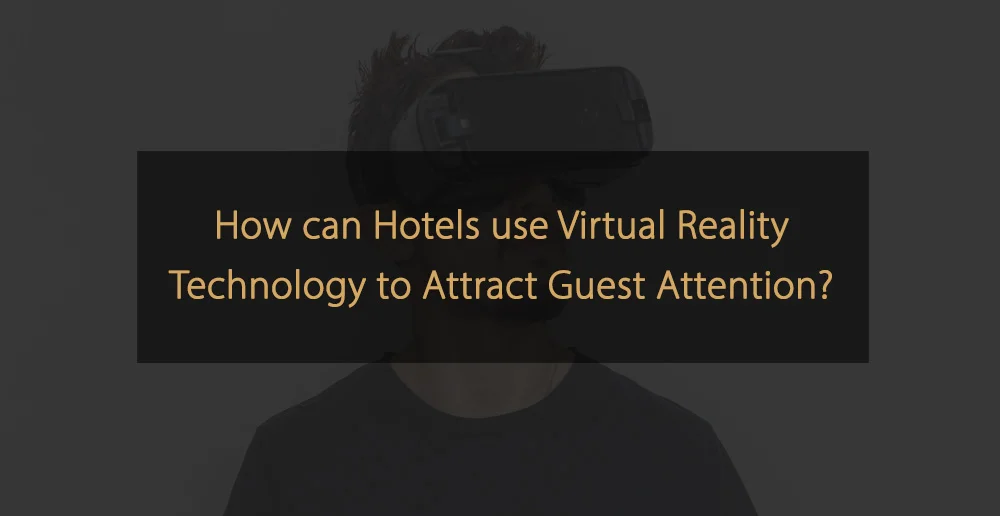
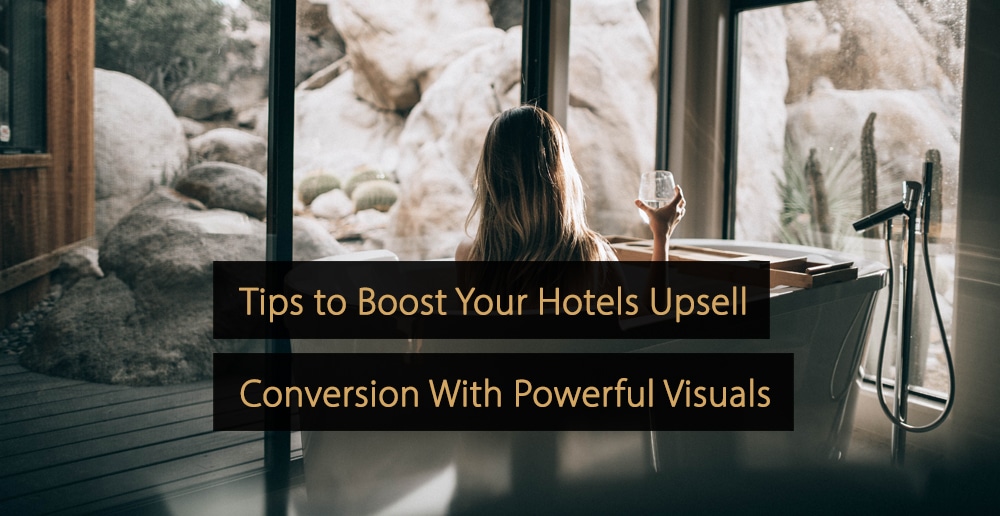
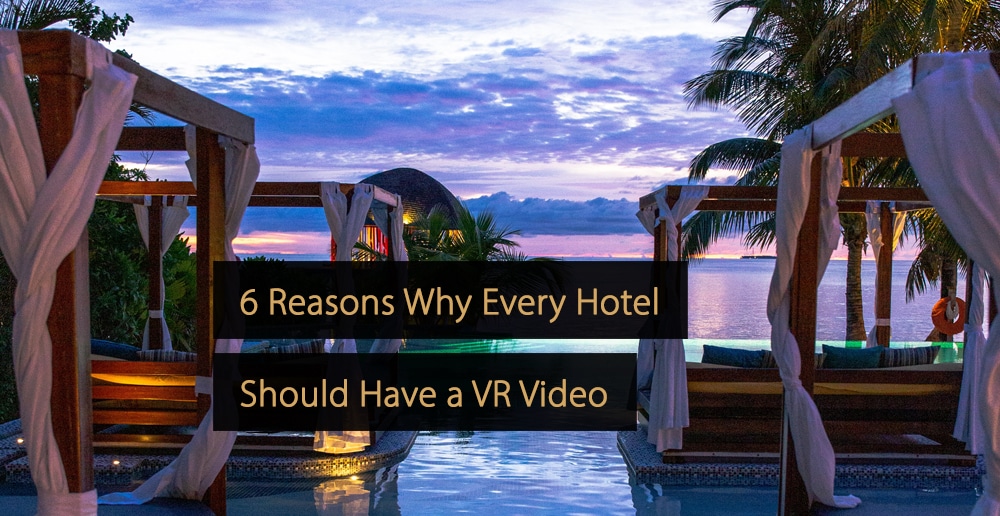
Video marketing is the king nowadays for all platforms. We see lot of people love to post videos on YouTube and get a higher reach than other content. I dare to say that video marketing is getting bigger than other content marketing. This information is great and provides a lot of knowledge.
In my experience, I think great long stay hotels and hotels in general who have great marketing videos like this are the ones that really offer quality service and accommodations.
Thank you for these video marketing tips; they are very useful.